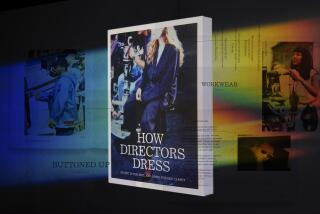Wedding Directors-- Plenty to Do Before Couple Says ‘I Do’ : Nuptials: Making a trip to the altar smooth for bride, groom and church can take the patience of a saint. Group offers mutual support and practical tips.
- Share via
They take few vacations, rarely have a weekend free and are on the phone frequently with brides-to-be worrying over wedding details. They rope in aisle-blocking cameramen and squelch messy ideas, such as releasing pigeons during the wedding vows.
They are church wedding directors, and despite modest pay they enjoy the work so much that many have done it for decades.
Nancy Stevens has missed only two weddings at Reseda United Methodist Church since she began coordinating nuptials in 1966.
“You do it not to earn a living but for other reasons,” Stevens said. “It’s a ministry.”
But while many do see the job as a calling, it can be very trying. In 1991 several directors formed an interdenominational association in Los Angeles to compare pay scales, provide mutual support and establish ethics and standards, as well as to exchange “war stories” about nuptials gone awry.
Stevens was installed last month as president. More than 100 women from Protestant and Catholic churches now belong to the group, the founding chapter of the American Association of Wedding Directors.
The group’s senior member is Juanita Portlock, who has directed weddings at Los Angeles’ Bethel African Methodist Episcopal Church for more than 30 years.
Stevens and her predecessor, Lori Jones, a longtime wedding director at Wilshire United Methodist Church, say the organization sees itself as a professional group akin to the organists’ guild.
*
Wes Velkov, newsletter editor for the Los Angeles chapter of the American Guild of Organists, said he understands the impulse. Organists have enough headaches: soloists who shouldn’t be soloing, pleas to play music unsuited for the organ, pressure to justify their fees.
Wedding directors have even more. “That is an awful job,” he said. “You have no idea how difficult brides can be.”
Early in the group’s existence, Jones said, a church wedding director “was fired for trumped-up reasons because the minister’s wife wanted to do the weddings.” The group considered lodging a protest, but decided that it was too new to be effective.
And, according to Stevens, church weddings have become much more elaborate over the last 15 years.
“Gone are the days when a young woman of 18 or 20 comes with a request for a small wedding with a family friend as a photographer and a reception nearby,” Stevens said.
Today’s bride is more likely 25 or 30 years old, and she often comes with a package of vendors--video cameramen, photographers, florists, limousine lessors and sometimes hired wedding coordinators, she said.
Wedding planners also struggle with their own brand of ethical dilemmas: pay is fairly low, for example, and the temptation exists for church wedding directors to take kickbacks from vendors in exchange for referrals. Stevens and Jones said the church wedding directors group is against the practice.
*
“I’ve had photographers say, ‘There will be $100 every time you refer a wedding to me,’ ” said Stevens. “It is inappropriate for a member of a church staff to take a kickback or a gratuity.”
Jones said most wedding directors receive between $100 and $150 per wedding, but a survey of her group’s members found that one wedding director gets as low as $40 a wedding and another receives $300.
Selma Civiletti, who directs weddings at St. Alban’s Episcopal Church in Westwood Village, estimated that she spends seven hours per wedding--on conferences, rehearsals and the wedding itself. “I meet with the bride maybe once, but I talk at least 20 times on the phone with her,” Civiletti said.
She said that she volunteered to fill a wedding director vacancy 26 years ago at the parish after her daughter encountered “a very officious” wedding director at a Beverly Hills church, one who had hinted broadly that some of her brides give her expensive presents.
Although few brides want receptions on church premises today, a church venue for the wedding is still popular.
*
A well-planned wedding that goes smoothly can have a positive effect on people who have drifted away from parishes, said Mary Anne Cosgrove, who does 50 weddings a year at St. Paul the Apostle Catholic Church on Los Angeles’ Westside.
Catholic churches once discouraged weddings on Sunday, but she said the policy has changed, partly because hotels and other popular sites for wedding receptions charge so much on Fridays and Saturdays.
The competition among hotels and restaurants for large wedding parties has produced some perks for the wedding directors’ group: Their meetings are held in such fashionable venues as the Pavilion Restaurant at the Music Center Downtown and the Bistro Garden in Beverly Hills.
“I have been served the most incredible, decadent meals in my life,” admitted Nancy Stevens. In November, a Holiday Inn in Torrance served the group “four salads, six entrees and four desserts,” she said. “I rolled out of that meeting.”
Last summer, the growing network of wedding directors proved a blessing for Jones. An arsonist struck Wilshire United Methodist Church, burning the sanctuary. Church services were relocated, and with her colleagues’ help, many of her 39 pending weddings were rescheduled at other churches.
More than anything, Jones said, the task is a ministry that requires a balanced liaison between church and families.
“We try to show them that organized religion is not just a money-grubbing, get-them-in-and-get-them-out business,” she said.
“We want to make the wedding beautiful and meaningful for the couples, while assuring that church policies are not violated in ways that the church would be held up to ridicule.”


